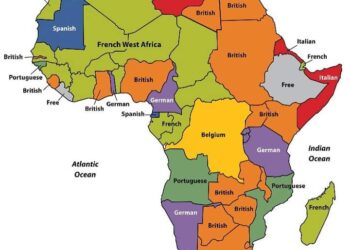A group, Waterlight Save Initiative, Monday said it is ready to improve the water supply needs of Nigerians across the six geopolitical zones through Solar Powered Community Borehole Systems (SPCBS).
Founder of waterlight,Prince Ero Ibhafidon, during an engagement with the media said it is part of his resolve to assist in achieving the United Nation’s Sustainable Development Goal (UNSDG), aimed at achieving universal access to safe water by the year 2030.
Engr. Prince Ero further said considering the effect of the global pandemic, where considerable cautions and carefulness are to be put in place, frequent washing of hands, averting the rape cases of our girl child who have to fetch water from distance ponds, streams and well as to reduce to the barest minimal the prevalent cases of insecurity and kidnapping in the local communities.
“Summing it up, clean and safe water cannot be overemphasised in preventing and managing infectious diseases.
“Sustainable Development Goal 6 (SDG 6 or Global Goal 6) is about “clean water and sanitation for all”. It is one of 17 Sustainable Development Goals established by the United Nations General Assembly in 2015, the official wording is: ‘Ensure availability and sustainable management of water and sanitation for all.’
“Unfortunately, this is far from reality in Nigeria, going by available statistics and reality on ground. Over 90% of the populace especially in the rural areas does not have access to clean water. our interest is to help achieve safe water supply, which is a pre-condition to making any headway towards achieving the SDG in 2030.”
He added that the initial major targets includes the Internally Displaced Persons camp, extremely marginalised, disadvantaged and vulnerable community based people, hard to reach villages/communities that have little or no access to springs, lakes, dams, ponds, rain and streams.
“Social justice, equity and fairness in deciding hard to reach constituents/villages will be prioritised and not politically inclined. Various unreached communities have been identified, which is a fair representation of the 6 geo-political zones of Nigeria for outreach and intervention,” he added.
The project, he said, shall be scaled up through: “Strengthening strategic collaboration with federal, state and local governments, MDAs, quality collaborative engagement with well meaningful donors, civil society organizations, nongovernmental organizations, community based organizations and faith based organizations by using digital and technological inclusion to drive the visionary innovations throughout the entire project lifecycle.”




